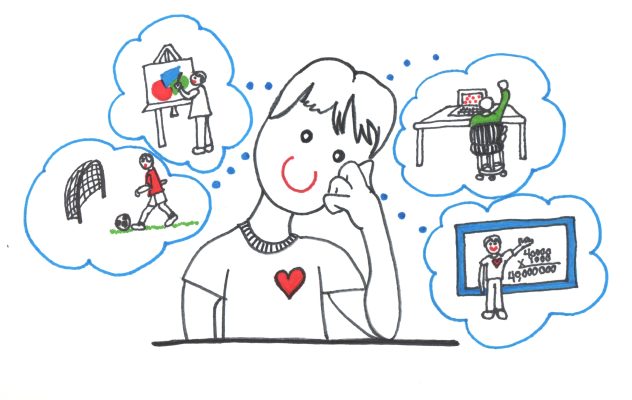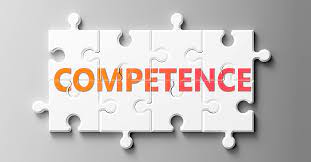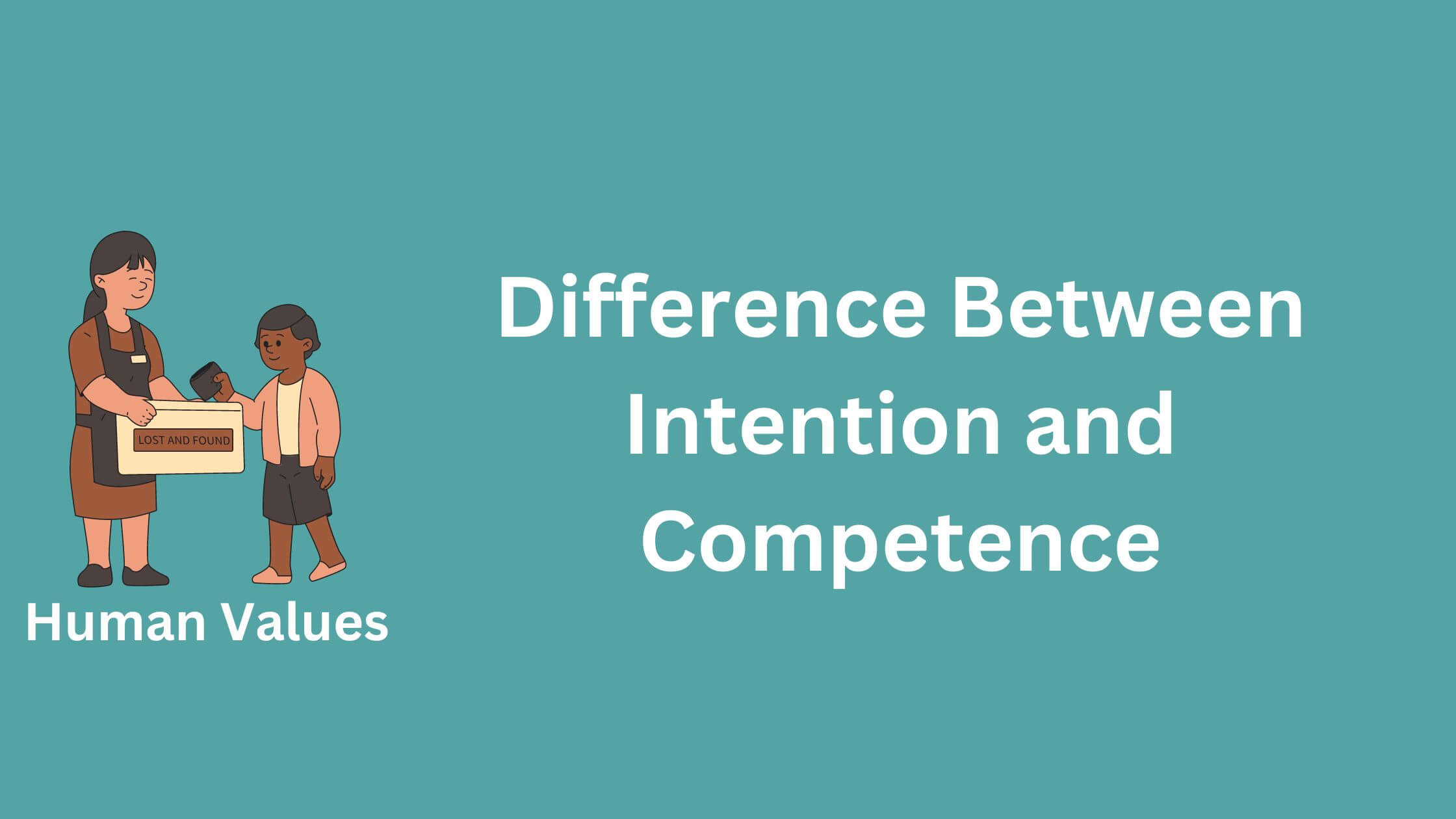The Difference Between Intention and Competence
As we navigate through life both in our professional realms we frequently come across two ideas; intention and competence. Although these concepts are separate they often intersect, in our behaviors and their results. To fully appreciate their impact, it’s essential to delve into the difference between intention and competence.
What is Intention?
Intention is a state of mind that represents a dedication, to accomplishing an action or a series of actions in the future. It involves planning, foresight and a strong desire or determination to attain a result. Intentions serve as the motivating factor behind our goals and dreams.
They shape our thoughts impact our behavior and lay the groundwork for our endeavors. Whether its having the intention to acquire knowledge enhance connections or succeed in ones professional life intentions act as the seeds, from which actions sprout.

What are Intention Tremors?
Intention tremors refer to an occurrence that becomes more noticeable when engaging in precise movements. They frequently manifest as a symptom of conditions such, as sclerosis or brain injuries.
This involuntary shaking stands in contrast to the idea of intention in our behavior and actions which typically involve voluntary and planned activities. By comprehending this condition we gain insight into the functioning of our brain and its influence, on our physical capabilities.
What is an Intention Candle?
In spiritual and meditative traditions people use intention candles as a way to concentrate their thoughts and energies, on a particular objective or aspiration. When the candle is lit individuals symbolically ignite their intentions using the flame as a point of focus to bring their goals into reality. This practice highlights the significance of setting intentions and the belief that they have the power to impact the world.
Do Intentions Affect Behavior?
Our intentions play a role, in determining how we behave. They serve as a guiding influence shaping the path and character of our actions. However, the difference between intention and competence is crucial here. Intentions play a role, in guiding our actions.
It is our competence that ultimately determines how effective and efficient those actions are. It’s important to recognize this distinction because with intentions some actions may not lead to the desired outcomes.
Does Intention Matter?
Intention plays a role, in guiding our actions and choices. It lays the foundation, for our goals. Can greatly impact how we perceive and handle circumstances. Nevertheless having intentions doesn’t guarantee effective outcomes. This is where the difference between intention and competence becomes evident. Being competent which means being able to carry out an action is crucial, in order to turn intentions into successful results.

Is Intention a Verb?
Intention is actually a noun, not a verb. It refers to a persons plan aim or objective. When we talk about the form of intention it would be “intend,” which means to have a purpose or objective, in mind.
When Intentions are Pure
Genuine intentions are defined by their selflessness and the aspiration to create results without any motives or selfish aims. Such intentions frequently lead to actions. Play a vital role, in fostering trust and integrity. However, the difference between intention and competence is critical here. Even the genuine motives require the support of skill and ability to achieve their desired outcomes efficiently.
When Intentions are Good
Intentions that are pertain, to the aspiration of producing outcomes or actions. They serve as our ethical guide influencing the decisions we make and the way we behave. Nevertheless it’s important to acknowledge that with the intentions achieving successful results may require certain skills or abilities. This is a classic example of the difference between intention and competence.
When Intention Synonym
Intention in essence can be used interchangeably with purpose aim plan or objective. These terms all revolve, around the notion of having a goal or plan, in mind. They encompass the concept of envisioning a desired outcome.
Which Intention Sentence
An instance of an intention sentence would be; “I plan to finish this project before the month ends.” This sentence effectively communicates an objective demonstrating the individuals dedication towards accomplishing a particular task.
Is Intent and Intention the Same?
Sometimes people use the terms ‘intent’ and ‘intention’ interchangeably. There is a distinction, between them. ‘Intent’ primarily focuses on someones mindset and their determination to take action whereas ‘intention’ typically relates to the plan or purpose, behind that action. However in situations these two words can be considered synonymous.

How is Intention Proved?
Demonstrating intention involves providing evidence of an individuals mindset and intentions based on their words, actions and the surrounding circumstances of an event. This typically necessitates using reasoning and delving into the persons underlying motivations and plans.
Why Set Intentions?
It’s important to establish intentions because they assist us in concentrating our thoughts and efforts on an objective or result. They play a role, in helping us attain what we want by aligning our emotional energies with our practical endeavors. Intentions serve as a guide directing us towards our goals while keeping us connected to our values and objectives.
Will Intention Synonyms
There are words that can be used as synonyms, for the word “will” when referring to intention. Some examples include determination, resolve and purpose. These terms carry a meaning of having a decision or a strong determination to accomplish something. They represent the emotional commitment that lies behind an intention.
Will Intentions Definition
Intentions are essentially the decisions or resolutions that individuals make with an determined mindset. They encompass the determination, mental focus and emotional drive that push someone towards achieving a goal.
Can Intentions Change?
Absolutely intentions have the potential to shift due, to factors, like information changing circumstances or even a persons evolving perspective and priorities. As individuals mature and develop their intentions naturally transform well. This inherent flexibility of intentions is what gives them their strength and ability to adapt.

What are Social Competence?
Being competent means being able to navigate interactions and relationships, with ease. It involves having communication skills being empathetic understanding cues and being capable of establishing and nurturing relationships. Social competence is crucial, for both professional achievements since it influences our ability to connect and engage with others effectively.
Where Did the Word Competence Come From?
The term competence has its roots, in the word “competentia,” which refers to a state of agreement, harmony or balance. Over time it has come to represent the skill or aptitude to handle a matter.
What are Competence in Teaching?
Teaching competence refers to the skill of educators in imparting knowledge engaging students and creating a positive and supportive learning atmosphere. It involves abilities such, as expertise, in the subject matter understanding teaching techniques strong communication skills and emotional intelligence. Competent teachers are capable of adjusting their approaches to cater to learning styles and individual needs ensuring that all students have equal opportunities to learn and thrive.
What are Competence Definition?
Competence refers to the capacity to accomplish something, with success and efficiency. It covers an array of skills, knowledge and behaviors that’re essential for effectively carrying out a task. Competence is typically tailored to a job, assignment or domain. Is developed through training hands on experience and dedicated practice.

What are Competence in Nursing?
Competence, in nursing encompasses the abilities, expertise and professional discernment that nurses need to possess for delivering healthcare to patients. This encompasses skills, the aptitude for critical thinking an empathetic approach, as well as the capacity to make sound choices when confronted with demanding circumstances. The proficiency of nurses plays a role, in guaranteeing safety and maintaining the provision of high quality care.
What are Examples of Cultural Competence?
Cultural competence involves recognizing and valuing distinctions effectively interacting with individuals, from backgrounds and adjusting services to accommodate the cultural requirements of clients. For instance a healthcare professional should be mindful of. Show respect, for dietary restrictions while a teacher can incorporate diverse perspectives into their curriculum to promote multiculturalism.
What are the Four Stages of Competence?
The four stages of competence are a model for learning and acquiring skills:
- Unconscious incompetence: This is when you are unaware of what you don’t know.
- Conscious incompetence: It occurs when you become aware of what you lack knowledge in.
- Conscious competence: This stage involves learning and applying skills but still requiring conscious thought.
- Unconscious competence: Mastery of a skill, to the point where it becomes nature.
Do You Apply with Non-Formal Competence?
Absolutely! You have the option to utilize your expertise, which pertains to the skills and knowledge you’ve gained outside of educational and training systems. This could include work experience, volunteering, hobbies or self guided learning. These non formal competences are becoming widely acknowledged as assets, in a range of professional and academic environments.

Does Competence Have Plural?
Yes the word “competence” has a plural form; “competences.” It is used to describe areas or instances of skill and ability. For instance a professional may possess competences, in both technical aspects of their work.
How Competence Work?
Competence is the result of integrating knowledge, skills and abilities to effectively and efficiently accomplish tasks, across scenarios. It encompasses not possessing the required skills but also comprehending when and how to utilize them. Competence develops through experience learning and ongoing enhancement.
How to Pronounce Competence?
The correct pronunciation of competence is /ˈkɒm.pɪ.təns/. The stress is, on the syllable and the ‘tence’, at the end is pronounced like ‘tens.’
Is Competence Important?
Competence plays a role, in determining the effectiveness and quality of work or actions across fields. It is the key, to individuals performing their roles efficiently meeting standards and attaining goals. Competence often distinguishes individuals and organizations from others.
Is Competence a Competency?
Competence can be seen as a skill or ability, in a field. However the term ‘competency’ is often used broadly including not skills and knowledge but also behaviors and attitudes that help in achieving effective results.
Which Intercultural Competence?
Intercultural competence refers to the skill of appropriately communicating with individuals, from cultures. It encompasses understanding disparities recognizing our cultural biases and adjusting our communication and behavior to honor and accommodate these differences.
Which is Pragmatic Competence?
Pragmatic competence refers to the skill of utilizing language within settings comprehending both the explicit and implicit messages, in communication. It entails having knowledge on how to employ language in scenarios understanding idiomatic expressions, humor and metaphors as well as being attuned, to the social intricacies of interaction.

What is the Difference Between Intention and Competence?
The difference between intention and competence is fundamental and profound. Intention refers to the plan. Desire to take action encompassing our goals, aspirations and the mental dedication towards achieving an outcome. Competence on the hand relates to the skill and capability to perform the action. It involves putting knowledge, skills and abilities into use to attain a desired result.
What is the Difference Between Intention and Competence in Relationship?
In relationships, the difference between intention and competence is particularly significant. In a relationship having intentions means wanting to care for and strengthen the bond with your partner.
However being competent, in a relationship requires intelligence, communication skills and a deep understanding of how to translate those intentions into meaningful actions. It’s not just, about desiring to bring happiness to your partner (intention). Also possessing the skills and insight to make it happen (competence).
Difference Between Intention and Competence SlideShare
A SlideShare presentation on the difference between intention and competence would visually illustrate how intentions are about plans and goals, whereas competence is about the ability to execute these plans. It would probably involve using examples, situations and maybe even real life case studies to illustrate how these concepts manifest in situations.
Difference Between Intention and Competence in Tabular Form
| Intention | Competence |
| Plan or desire to act | Ability to act effectively |
| Mental state | Skill set |
| Influences behavior | Determines success of behavior |
| Subjective and internal | Objective and measurable |
| Can exist without action | Demonstrated through action |
Difference Between Intention and Competence with Example
A clear illustration of the contrast, between intention and competence can be seen in someone aspiring to become a musician (intention) and possessing the musical abilities, consistent practice and knowledge of music theory to accomplish that goal (competence). While intention establishes the desired outcome it is competence that empowers individuals to actually achieve it.
You Also May Like
Mind-blowing Photos From The Mental Hospital
Difference Between Intention and Competence in UHV
In Universal Human Values (UHV), the difference between intention and competence is crucial. Intention refers to the value driven choices we make while competence pertains to the abilities needed to embody those values. For example an individual might possess the intention (UHV) of leading a life. Demonstrating competence, in UHV necessitates comprehending ethical principles and effectively applying them in practical situations.
Final Thought
The difference between intention and competence is vital in all aspects of life. It reminds us that while having intentions guides us it is our competence that allows us to achieve our goals. Both aspects are crucial. When they work together they lead to significant results, in both personal and professional areas.





